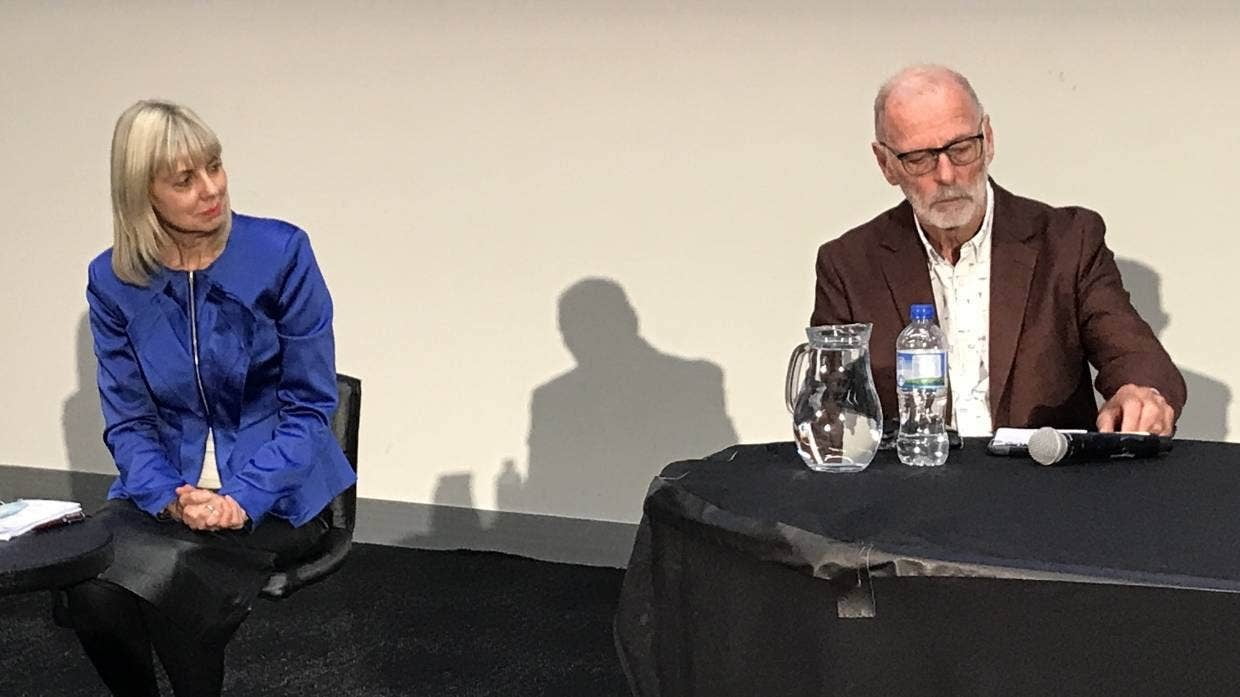Most of the time things go well when dealing with digital and tech providers, but when things go bad - they can go really bad! So how do you avoid getting into a messy situation?
One recent high-profile situation might hold some pointers.

Digital dispute in the mayoral contest
The race for the Auckland mayoralty, to be decided at the local body elections in September and October this year, has taken an interesting turn with recent revelations about an unpaid six-figure bill for social media services for one of the candidates.
Viv Beck’s bid for the top job in our biggest city has been side-tracked by the dispute, which at one stage saw her locked out of her campaign Facebook account and website. Beck then had to engage a new campaign company which rapidly – and by all accounts professionally – set up a new website and other social media resources.
I’m not concerned, for the purposes of this discussion at least, with the relative merits of the original and new social media companies; nor with those of the candidates in the race to be Mayor. I’m happy to leave those judgements to their customers and the ratepayers respectively. I don't have enough information to suggest who’s in the wrong, although as always it’s pretty clear both parties bear some responsibility.
However, the situation Viv Beck and her social media company – Hello Limited – found themselves in is one worth digging into, to try and understand how this could happen, and how best to avoid it.
Legal disputes can get messy, expensive and ugly, and can consume a lot of resources and energy at a time when a candidate should be fully focused on the prize, and the service provider fully engaged in delivering great services at a fair price.

A quick recap of what we know:
- Viv Beck decided in early 2022 to run for the Auckland mayoralty.
- She engaged Hello Limited, who had previously worked on John Tamihere’s unsuccessful mayoralty run in 2019, to manage her campaign, including providing a film crew to record her launch statement in March.
- Hello Limited states it shared a “detailed plan on what it would do and when it would provide invoices” and the first monthly invoice was sent from February 2022. It’s unclear whether that plan included itemised costs or estimates of work, additional costs such as Google AdWords, Facebook ads and the like, specific deliverables, any performance criteria, or terms and conditions – including payment terms.
- Work was carried out, and invoices were sent, but not all were paid or paid on time, and the outstanding balance grew, allegedly to six figures.
- In August, Hello Limited went public about the debt, and allegedly locked Beck’s team out of the social media platforms, likely in an effort to "encourage" payment.
- Beck then engaged The Campaign Company to take over her social media and website and has been dealing with the fallout ever since – including less-favourable polling since the news broke.
- Finger-pointing and recriminations have followed, with criticism coming from Beck about the quality and cost of the work, and from Hello Limited that they were clear about what was being delivered and that Beck should pay up.
How to prevent a situation blowing up
So, how did this happen, and how can this sort of messy situation be avoided?
To be fair to the parties involved here, we have no inside knowledge and the following is based on media reports only. So please do consider this general guidance only!
The first thing to note is that there seems to be no clear contract for service between the parties, and that gets the commercial relationship off to a very bad start.
No doubt each party believed they were clear on what was required, and what was going to be delivered, but without a written agreement or contract in place, what each party thought was black and white can easily turn into various shades of grey.
The second obvious problem was that nobody seemed to be managing the relationship on an ongoing basis. If Beck’s team were unhappy about the quality and price, it’s incumbent on them to raise that formally and seek resolution.
Likewise, when Hello Limited realised they weren't being paid, it was very much in their interests to contact the client, ensure they’re happy with everything and enquire (politely but firmly) when payment will be forthcoming.

The third problem is that one or both parties decided it was a good idea to debate this in a public forum. In the normal course of business, this is not usually a good idea, and the “nuclear option” should only ever be a last resort.
When you’re running for public office, and a very high-profile office at that, being labelled a bad debtor and having the access to your social media platforms and campaign website cut off is not going to do you any favours with the voters. Nobody usually comes away looking good from a public dispute.
8 key components of a good agreement
The way to avoid these issues is quite straightforward and is the sort of thing we at CIO Studio take care to ensure is done very carefully, before any commitments are made.
First and foremost, ensure there is a written agreement for service, including the following:
- A clear description of the services to be provided, with dates if appropriate
- A list of all deliverables that are included, and any exclusions
- A schedule of costs that both parties agree to. It’s often impossible to nail everything down, and providers are reluctant to offer a fixed price, but there are ways to navigate this. For example, an estimate of x hours per month on each service, at an agreed hourly rate, and acknowledgement that if it looks like the hours will be exceeded, both parties are to meet to discuss at the earliest opportunity.
- Any third-party costs are payable by the client – Facebook adverts, Google AdWords and the like – with an estimated budget where possible.
- Payment terms and any other conditions, including how to deal with disputed invoices or part-invoices. It’s vital to have a means of resolving any concerns or issues in a civil, professional manner – preferably without recourse to the public domain
- KPIs – how will quality and client satisfaction be measured?
- Project oversight – usually one person from each party to deal with any issues as soon as they arise.
- The usual protections around ownership of data, privacy and security, intellectual property and non-solicitation clauses.
This may seem like a long list, and in fact, it’s not exhaustive, but the beauty of a well-crafted agreement – provided both parties do what they say they will – is that you almost never have to refer to it again. If you have to get the agreement out every time you have a conversation with the client, the relationship’s all but over.
By contrast, a well-crafted agreement that addresses all the above will become the foundation of a strong and mutually-beneficial commercial relationship – and, while it may not be enough to get you elected, it will at least prevent reputational damage at a time when you can ill-afford it.
Whether you’re running for high office or want to develop an IT strategy and technology roadmap, CIO Studio will make sure we understand what you need, what you’ll pay for, and how we can both be certain the project is delivering what you expect.
Mike Dennehy is a Core Advisor with CIO Studio. Whether you’re running for high office or want to develop an IT strategy and technology roadmap, CIO Studio will make sure we understand what you need, what you’ll pay for, and how we can both be certain the project is delivering what you expect. Drop us a note to discuss your needs.
Get industry updates, tech news, and CIO Studio blogs free to your inbox!
